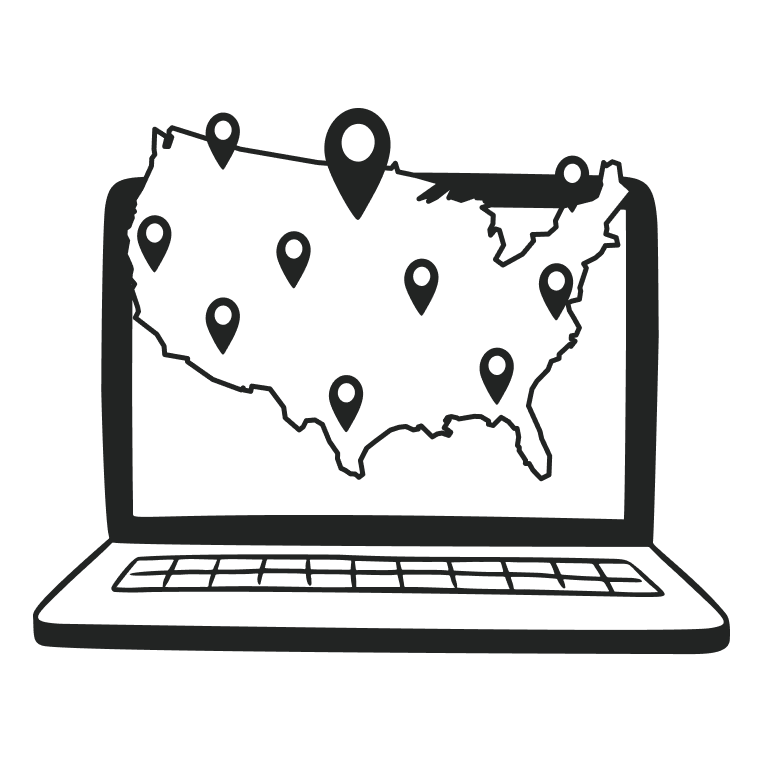We designed the states section of our website for easy browsing and comparing of software engineering degree options within each state. We encourage you to use these guides to learn more about software engineering education and career opportunities that are close to home. If local options are limited, expand your search into nearby states.
Find Software Engineering Degree Programs Near You
To begin your search, select your state from the list below. Each state guide includes
- All the schools with software engineering degree programs, from associate’s degrees to PhDs
- Educational initiatives, unique research, and other university offerings
- The software engineering landscape particular to that state
- Career opportunities and job outlook for software engineers in each geographic area
Select your location from the list below:
- Alabama
- Arizona
- Arkansas
- California
- Colorado
- Connecticut
- Delaware
- Florida
- Georgia
- Idaho
- Illinois
- Indiana
- Iowa
- Kansas
- Kentucky
- Louisiana
- Maine
- Maryland
- Massachusetts
- Michigan
- Minnesota
- Mississippi
- Missouri
- Montana
- Nebraska
- Nevada
- New Hampshire
- New Jersey
- New Mexico
- New York
- North Carolina
- North Dakota
- Ohio
- Oklahoma
- Oregon
- Pennsylvania
- Rhode Island
- South Carolina
- South Dakota
- Tennessee
- Texas
- Utah
- Vermont
- Virginia
- Washington
- Washington, DC
- West Virginia
- Wisconsin
How the Software Engineering Landscape Compares Across States
It’s understandable that you want to pursue your software engineer training close to home. But look at several states and you’ll quickly see that opportunities for new software engineers vary considerably. From university offerings to the local economy, it’s clear that where software engineers live makes a difference.
Your location has a big impact on the number of software engineering degree programs available and how far you must travel to participate in the program you choose. Professional degree programs, such as those for software engineering, tend to crop up where organizations or businesses that rely on software engineers have become an important part of local and state economies.
This explains why you can expect to find many educational opportunities in California—home of Silicon Valley and 81 software engineering degree programs. It’s also why there are fewer choices in a state such as Wyoming (one program only), where technology has not established itself as an engine of growth.
When it’s possible to do so, there are many advantages to staying in-state for your degree: learn in-person with knowledgeable faculty, network with fellow students and local professional organizations, and save money on tuition at a local, public university.
The Benefits of an In-State Software Engineering Program
If you complete your software engineering education in-state, you can benefit from a variety of advantages, ranging from serious savings to less anxiety when it’s time to look for work after graduation.
More Affordable Tuition
For many students, deciding whether to pursue an in-state education often becomes a matter of program availability and cost. In-state students have always had a financial advantage because residents receive state-funded reduced tuition—and the reduction can be a hefty piece of change.
For example, Michigan State University’s resident students paid $14,914 annual tuition in the 2021–2022 academic year. But if they weren’t residents, they paid an average of $40,726 tuition. That’s a whopping 63% reduction in favor of resident students.
Emotional Solidarity
When you learn close to home, you will probably connect with peers who share many of your interests and values. This is no joke. The pandemic years have taught educators and students how important not feeling isolated is for the sake of one’s mental, physical, and academic well-being.
Face-to-Face Learning
Working in person with expert faculty members provides opportunities for more flexible teaching and discussion. Online, the course content and delivery are set; education is somewhat reduced to a matter of information transfer. In-person learning is different. You never know where a discussion may lead and what you might learn when you get there. Face-to-face teaching provides the element of exploration, a valuable part of any education.
In-Person Networking After Graduation
If you are hoping to connect with in-state businesses looking for entry-level software engineers, contacting them (and perhaps setting up an internship) is much easier with local companies. And most programs connect with local businesses to help students get their foot in the door after graduation. This is where face-to-face networking can seriously work to your advantage.

